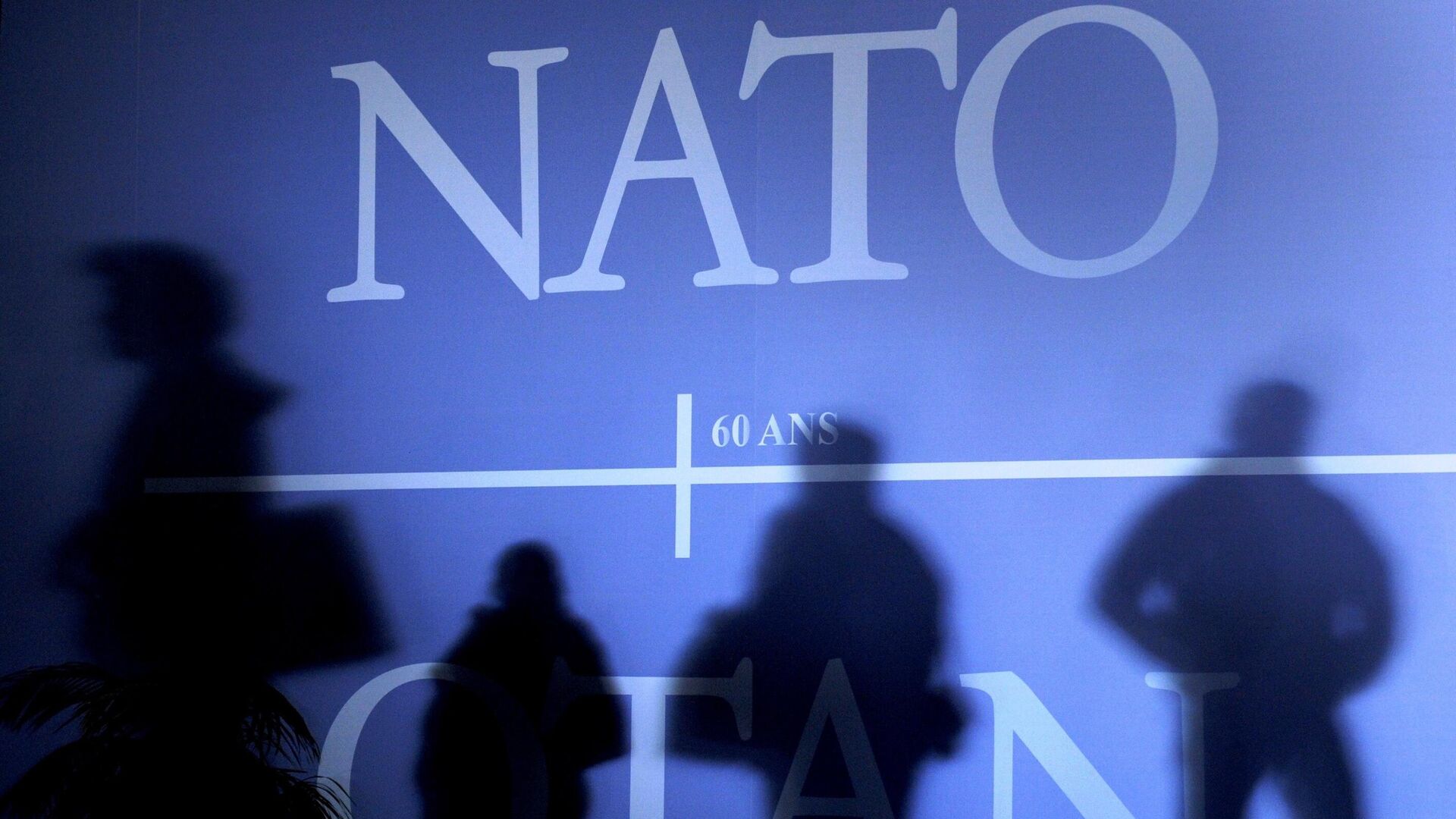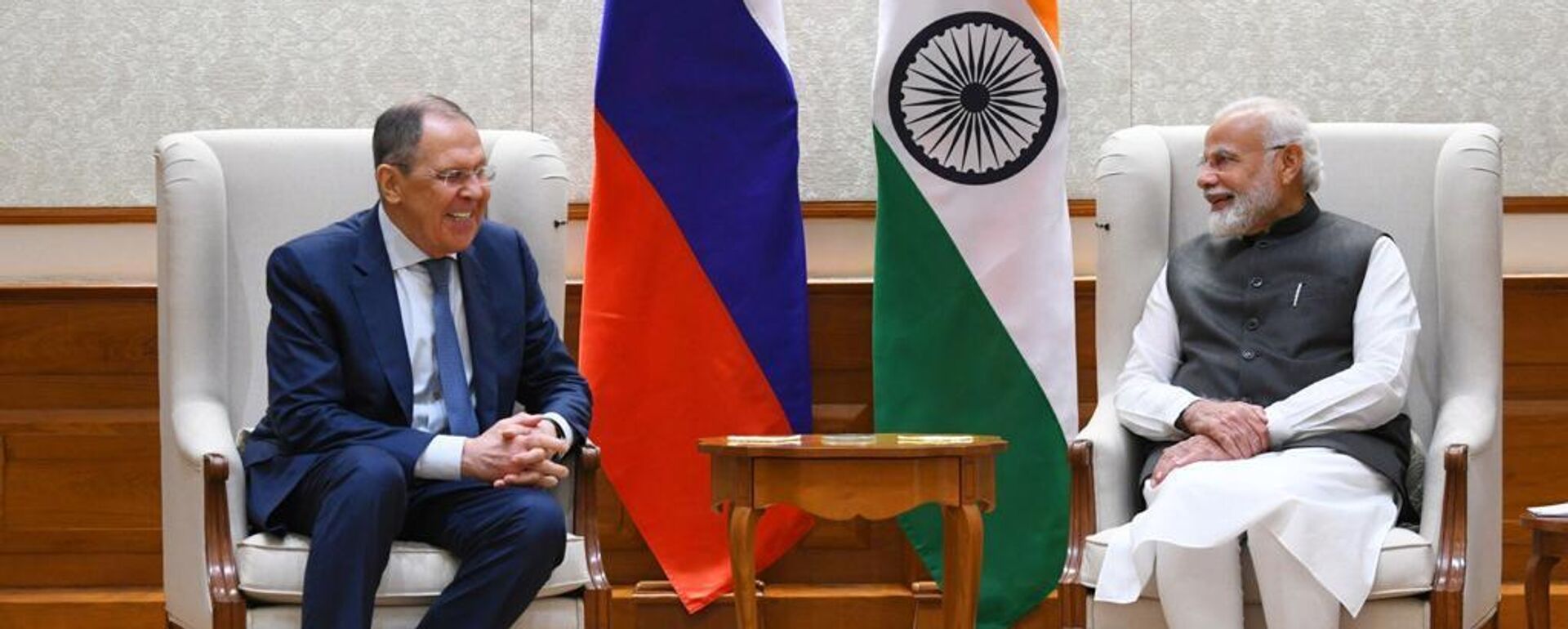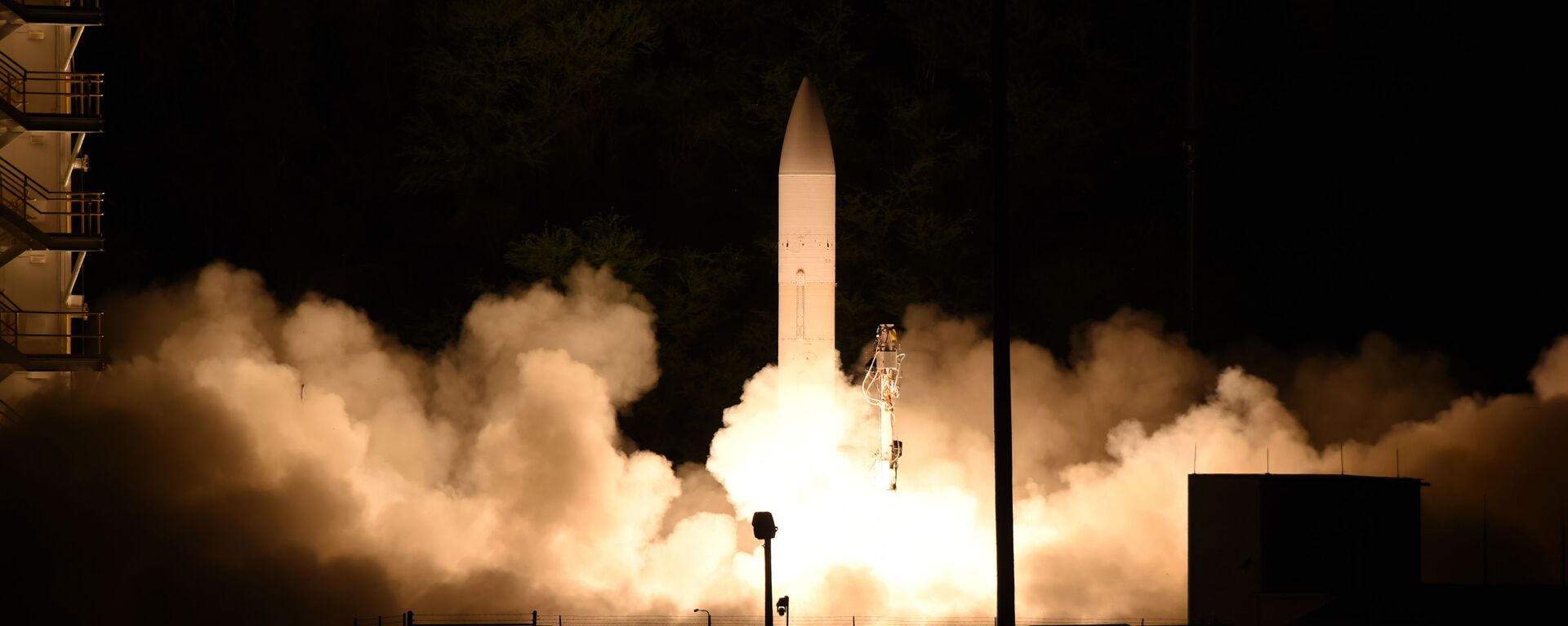https://sputnikglobe.com/20220407/navy-veteran-india-must-be-careful-in-engaging-nato-as-alliance-seeks-bigger-role-in-asia-pacific-1094545571.html
Navy Veteran: India Must Be 'Careful' in Engaging NATO as Alliance Seeks Bigger Role in Asia-Pacific
Navy Veteran: India Must Be 'Careful' in Engaging NATO as Alliance Seeks Bigger Role in Asia-Pacific
Sputnik International
The NATO foreign ministers’ meeting on 6-7 April witnessed, for the first time, the participation of Australia, Japan, New Zealand and South Korea. Secretary... 07.04.2022, Sputnik International
2022-04-07T11:33+0000
2022-04-07T11:33+0000
2022-07-19T10:43+0000
nato
ukraine
china
australia
russia
us
opinion
https://cdn1.img.sputnikglobe.com/img/07e6/05/14/1095655251_0:0:2833:1594_1920x0_80_0_0_493eddc6a465db16da0b73ade4794ff4.jpg
Retired Indian naval Commodore R. Seshadri Vasan has said that New Delhi “must be careful” not to be seen as too close to the North Atlantic Treaty Organisation (NATO), as the 30-nation transatlantic alliance seeks to expand its activities into the Asia-Pacific region in a bid to counter China's growing influence.The Indian Navy veteran said that India would get a chance to engage with NATO in the Asia-Pacific on different levels as New Delhi’s other “security partners” enter into a “deeper collaboration” with the transatlantic military alliance.India is currently involved in a standoff with Beijing within the disputed Ladakh region. Indian Foreign Minister S. Jaishankar told his Chinese counterpart Wang Yi during the latter’s visit to New Delhi last month that bilateral ties won’t return to normal until there is a mutual disengagement of troops and military de-escalation.While India is part of the Washington-led Quad, which also includes Australia and Japan, it has consistently refused to draw parallels between the Asia-Pacific bloc and NATO. India is the only Quad country which has refused to side with the US and NATO allies on the Ukraine crisis, against the backdrop of New Delhi’s defence and traditionally friendly ties with Moscow. Previously, Russian Foreign Minister Sergei Lavrov also slammed the US for dragging New Delhi in "anti-China games", a reference to Washington's Indo-Pacific strategy which sees India as a key partner.Vasan states reckons that the “main goal” of NATO seeking to expand the footprint of its activities in the Asia-Pacific would be to deter Beijing from undertaking any military action to take Taiwan by force.Both Beijing and Moscow have been scathingly critical of NATO’s eastward expansion towards Russian borders, which Moscow has said is among the reasons for the crisis in Ukraine. The Chinese foreign ministry last week held NATO directly responsible for the security crisis in Ukraine.In the joint declaration by Russian President Putin and his Chinese counterpart Xi Jinping during the former’s visit to Beijing in February, the Russian leader confirmed Taiwan’s status as “an inalienable part of China” and opposed attempts by “external forces” to undermine security in the respective neighbourhoods.Vasan notes that another objective of NATO in going into the Asia-Pacific is to brandish the group’s “strategic utility” to its allies.NATO has refused to accede to previous demands by Ukraine to be part of the conflict and enter into a direct confrontation with Russia. But the alliance has admitted to providing “practical and political” support to the eastern European nation.“The Alliance is helping to coordinate Ukraine’s requests for assistance and is supporting Allies in the delivery of humanitarian and non-lethal aid,” NATO states on its website.NATO Will ‘Compete’ With AUKUS, Says VasanThe Indian veteran also strongly feels that NATO’s increasing activities in the Asia-Pacific under the new ‘Strategic Plan’ will directly compete with those of AUKUS, a tri-nation pact comprising Australia, the United States, and the United Kingdom.“NATO’s involvement in the region would see European countries such as Germany and France being increasingly involved in the region. They would compete with activities of AUKUS, where the UK is a member,” he underlines.Vasan says that there could be “competition of influence in the Indo-Pacific” between a post-Brexit UK and other European allies such as France and Germany, each of them unveiling their own Indo-Pacific strategies since last year.Announced in September last year, AUKUS aims to provide advanced technology to the Royal Australian Navy (RAN) for the development of nuclear-powered attack submarines (SSNs). This week, AUKUS also announced that it would “accelerate development of advanced hypersonic and counter-hypersonic capabilities”.A statement by White House on 5 April said that AUKUS’ commitment to “a free and open Indo-Pacific” has “only grown” following the Russian operation in Ukraine.Chinese foreign ministry spokesperson Zhao Lijian, meanwhile, accused the AUKUS nations of “exploiting the Ukraine crisis” under the pretext of maintaining security in the Indo-Pacific. Beijing also says AUKUS could “incite” a nuclear-arms race in the region.
https://sputnikglobe.com/20220401/lavrov-slams-us-dictate-blackmail-says-russia-india-ties-unaffected-by-washingtons-threats-1094397512.html
https://sputnikglobe.com/20220405/biden-to-unveil-us-uk-australia-cooperation-on-hypersonic-weapons-1094504811.html
ukraine
china
australia
Sputnik International
feedback@sputniknews.com
+74956456601
MIA „Rosiya Segodnya“
2022
News
en_EN
Sputnik International
feedback@sputniknews.com
+74956456601
MIA „Rosiya Segodnya“
Sputnik International
feedback@sputniknews.com
+74956456601
MIA „Rosiya Segodnya“
nato, ukraine, china, australia, us, opinion
nato, ukraine, china, australia, us, opinion
Navy Veteran: India Must Be 'Careful' in Engaging NATO as Alliance Seeks Bigger Role in Asia-Pacific
11:33 GMT 07.04.2022 (Updated: 10:43 GMT 19.07.2022) The NATO foreign ministers’ meeting on 6-7 April witnessed, for the first time, the participation of Australia, Japan, New Zealand and South Korea. Secretary General Jens Stoltenberg said that the military alliance would “deepen cooperation” with the four nations under its new ‘Strategic Concept’ to counter Beijing’s growing influence.
Retired Indian naval Commodore R. Seshadri Vasan has said that New Delhi “must be careful” not to be seen as too close to the North Atlantic Treaty Organisation (NATO), as the 30-nation transatlantic alliance seeks to
expand its activities into the Asia-Pacific region in a bid to counter China's growing influence.
“The expansion of NATO into the Indo-Pacific will to an extent serve India’s interests as it would seek to apply more strategic pressure on China,” Vasan, who previously served as a regional commander of the Indian Coast Guard, told Sputnik.
The Indian Navy veteran said that India would get a chance to engage with NATO in the Asia-Pacific on different levels as New Delhi’s other “security partners” enter into a “deeper collaboration” with the transatlantic military alliance.
“But, for India, the complexity of such a move lies in the fact that [NATO's engagement with its Asia-Pacific partners] could also invite a closer collaboration in the Indo-Pacific between Russia and China under the ‘no-limits’ partnership signed on 4 February,” he cautions.
India is currently involved in a standoff with Beijing within the disputed Ladakh region.
Indian Foreign Minister S. Jaishankar told his Chinese counterpart Wang Yi during the latter’s visit to New Delhi last month that bilateral ties won’t return to normal until there is a mutual disengagement of troops and military de-escalation.
While India is part of the Washington-led Quad, which also includes Australia and Japan, it has consistently
refused to draw parallels between the Asia-Pacific bloc and NATO.
India is the only Quad country which has refused to side with the US and NATO allies on the Ukraine crisis, against the backdrop of New Delhi’s defence and traditionally friendly ties with Moscow.
Previously, Russian Foreign Minister Sergei Lavrov also slammed the US for dragging New Delhi in "anti-China games", a reference to Washington's Indo-Pacific strategy which sees India as a key partner.
Vasan states reckons that the “main goal” of NATO seeking to expand the footprint of its activities in the Asia-Pacific would be to deter Beijing from undertaking any military action to take Taiwan by force.
Both Beijing and Moscow have been scathingly critical of NATO’s eastward expansion towards Russian borders, which Moscow has said is among the reasons for the crisis in Ukraine.
The Chinese foreign ministry last week held NATO directly responsible for the security crisis in Ukraine.
In the joint declaration by Russian President Putin and his Chinese counterpart Xi Jinping during the former’s visit to Beijing in February, the Russian leader confirmed Taiwan’s status as “an inalienable part of China” and opposed attempts by “external forces” to undermine security in the respective neighbourhoods.
Vasan notes that another objective of NATO in going into the Asia-Pacific is to brandish the group’s “strategic utility” to its allies.
“NATO has been left completely helpless in Ukraine, where its move to potentially intensify cooperation with Kiev has been preempted by Russia’s military operation,” he argues.
NATO has refused to accede to previous demands by Ukraine to be part of the conflict and enter into a direct confrontation with Russia. But the alliance has admitted to providing “
practical and political” support to the eastern European nation.
“The Alliance is helping to coordinate Ukraine’s requests for assistance and is supporting Allies in the delivery of humanitarian and non-lethal aid,” NATO states on its website.
NATO Will ‘Compete’ With AUKUS, Says Vasan
The Indian veteran also strongly feels that NATO’s increasing activities in the Asia-Pacific under the new ‘Strategic Plan’ will directly compete with those of AUKUS, a tri-nation pact comprising Australia, the United States, and the United Kingdom.
“NATO’s involvement in the region would see European countries such as Germany and France being increasingly involved in the region. They would compete with activities of AUKUS, where the UK is a member,” he underlines.
Vasan says that there could be “competition of influence in the Indo-Pacific” between a post-Brexit UK and other European allies such as France and Germany, each of them unveiling their own Indo-Pacific strategies since last year.
Announced in September last year, AUKUS aims to provide advanced technology to the Royal Australian Navy (RAN) for the development of nuclear-powered attack submarines (SSNs).
This week, AUKUS also announced that it would “accelerate development of advanced hypersonic and counter-hypersonic capabilities”.
A statement by
White House on 5 April said that AUKUS’ commitment to “a free and open Indo-Pacific” has “only grown” following the Russian operation in Ukraine.
Chinese foreign ministry spokesperson Zhao Lijian, meanwhile, accused the AUKUS nations of “exploiting the Ukraine crisis” under the pretext of maintaining security in the Indo-Pacific.
Beijing also says AUKUS could “incite” a nuclear-arms race in the region.






